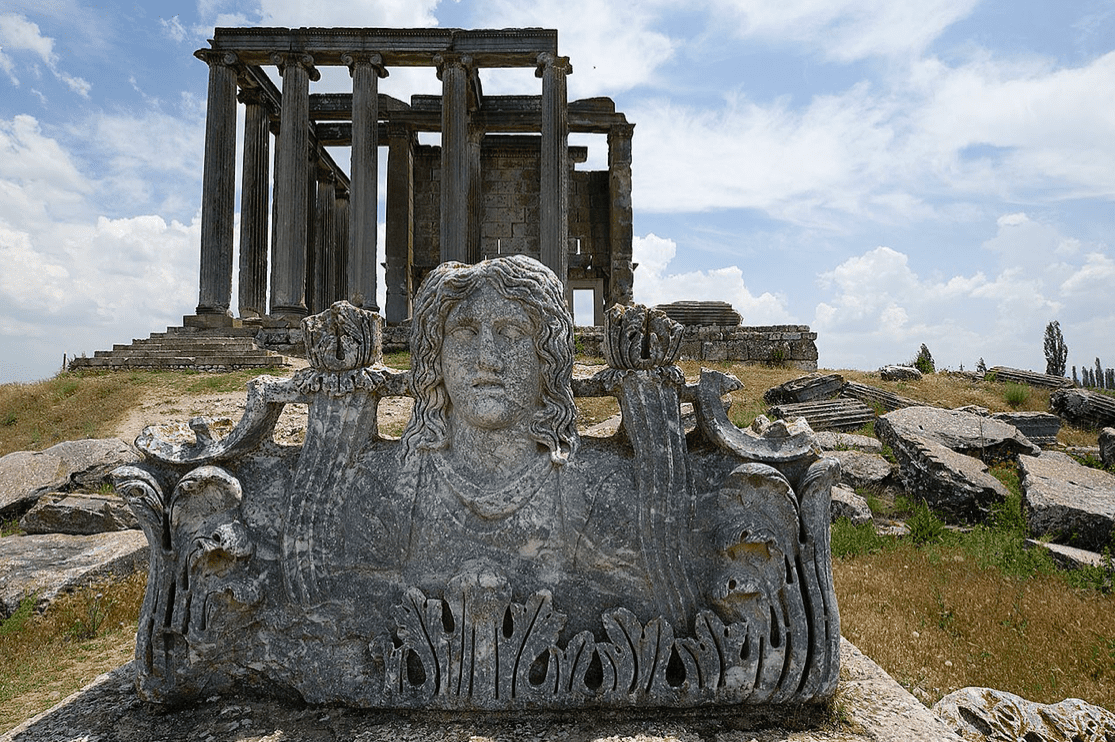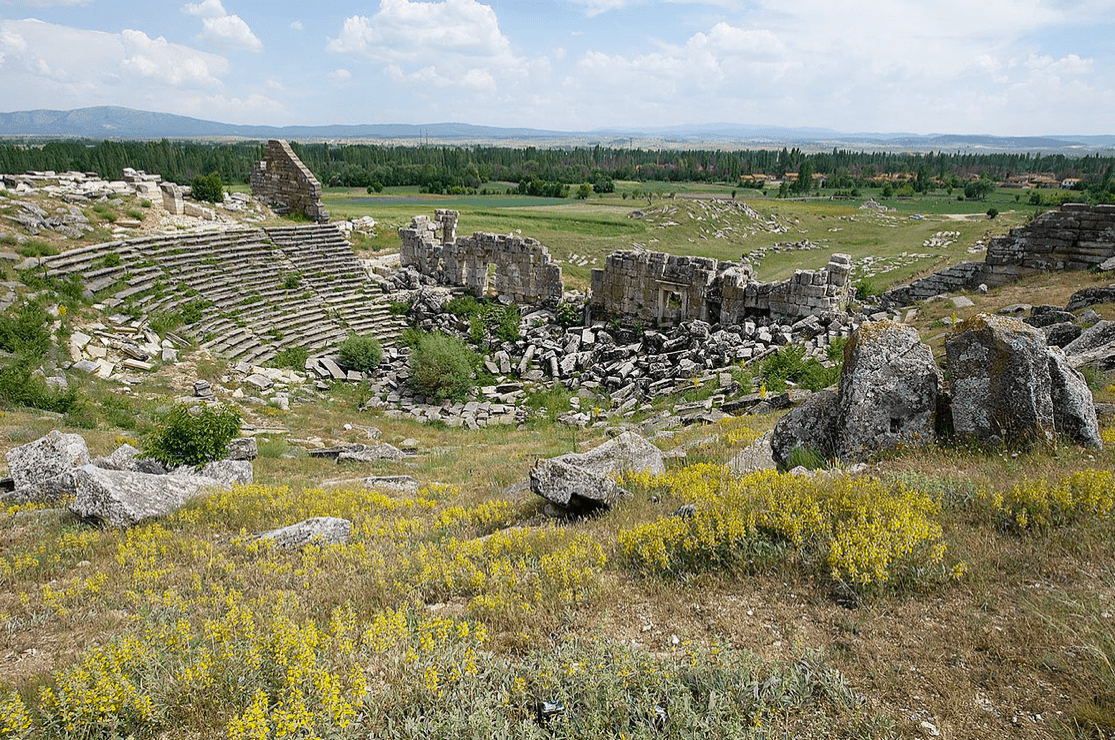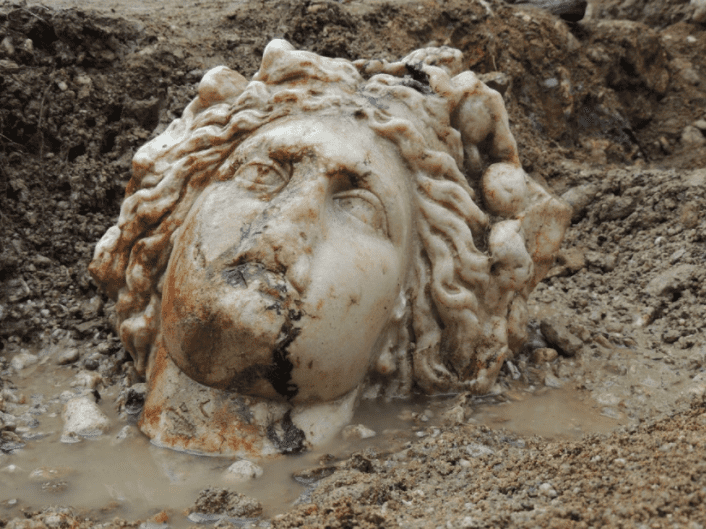Two heads of ancient statues of Aphrodite, the goddess of love, and Dionysus, the god of wine, have been uncovered in an archaeological dig in the ancient Greek city of Aizanoi, 50 kilometres from Kutahya city centre in modern-day western Turkey.
Described as possessing "astonishing beauty", excavation coordinator Dr Gokhan Coskun told Turkish state-run news agency Anadolu Agency that the heads of the Greek Gods were unearthed in Penkalas stream, noting that the bodies were found in a previous dig.
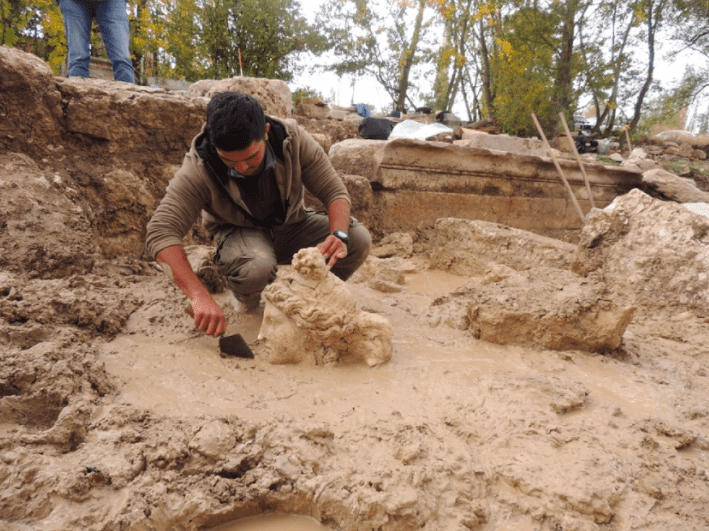
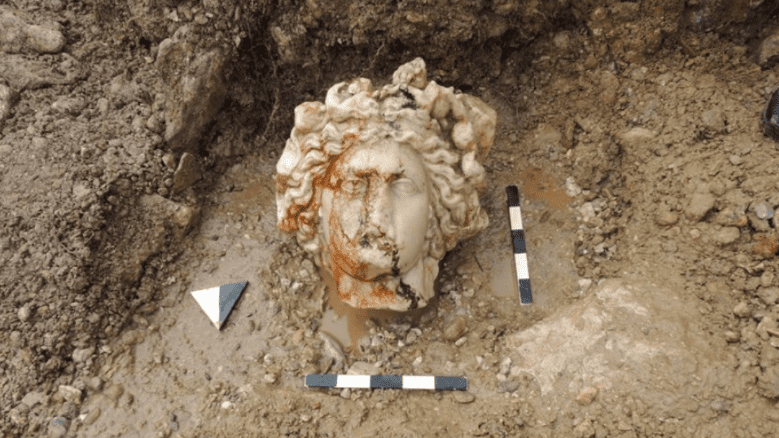
Penkalas stream is a tributary of the river Rindakos, where other antiquities have also previously been discovered, mainly from the Roman period.
"During the excavations, we came across findings that surprised us. These were the heads of large marble statues," said Dr Coskun.
"One head is of "Aphrodite", known as the goddess of love and beauty, with a height of about 50 cm. The other is from the statue of Dionysus 45 cm high, which is known as the god of wine in mythology."
"These are important findings for us, as they show that the polytheistic culture of ancient Greece existed for a long time without losing its importance in the Roman era," he said.
"The finds suggest that there may have been a sculpture workshop in the region."
The ruins of the ancient Greek city of Aizanoi date back to the Bronze Age and are situated alongside the River Penkalas, western Anatolia, some 1,000 metres above sea level.
Aizanoi, Latinized as Aezani, was an important political and economic centre in Roman times.
After the 7th century, the city fell into decline; however, surviving remains from the period include a well-preserved Temple of Zeus, a theatre-stadium complex and a macellum (ancient indoor market building) inscribed with the Price Edict of Diocletian.
Situated on a hill, The Temple of Zeus was the city's main sanctuary. Ceramic finds indicate local habitation from the first half of the third millennium B.C. The temple is pseudodipteral, with eight columns at both ends and fifteen along the sides (35m × 53m). It was damaged by the 1970 Gediz earthquake and has since been restored.
Aizanoi's theatre and stadium are built adjacent to each other and this combined complex is said to be unique in the ancient world. Construction began after 160 A.D. and was complete by the mid-third century.
Aizanoi is the first recorded place in the world where inflation was calculated and from there spread to other cities of the Roman Empire. A circular macellum (makellon in Greek) dating to the second half of the second century is located in the south. In the fourth century, it was inscribed with a copy of the Price Edict of Diocletian dating to 301, in an attempt to limit inflation resulting from debasement of the coinage
Later serving as a citadel, the site was submitted for inscription on the UNESCO World Heritage List in 2012.
